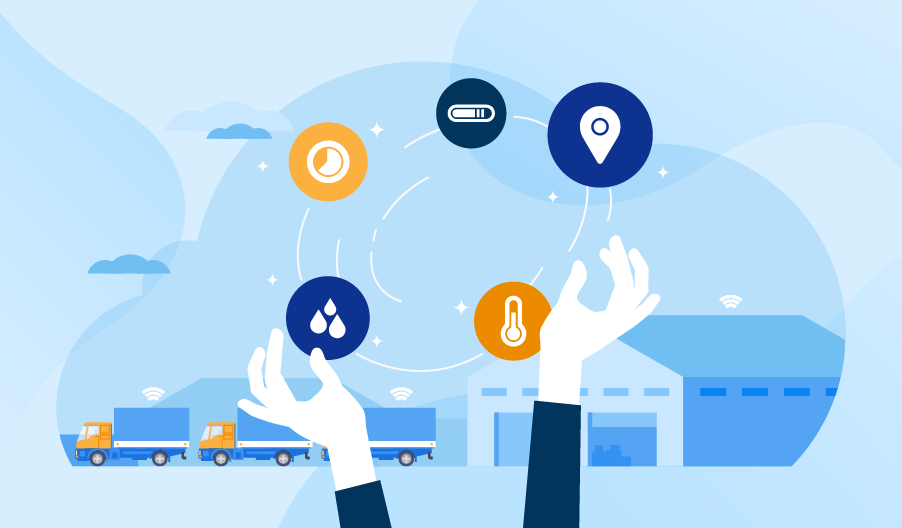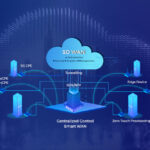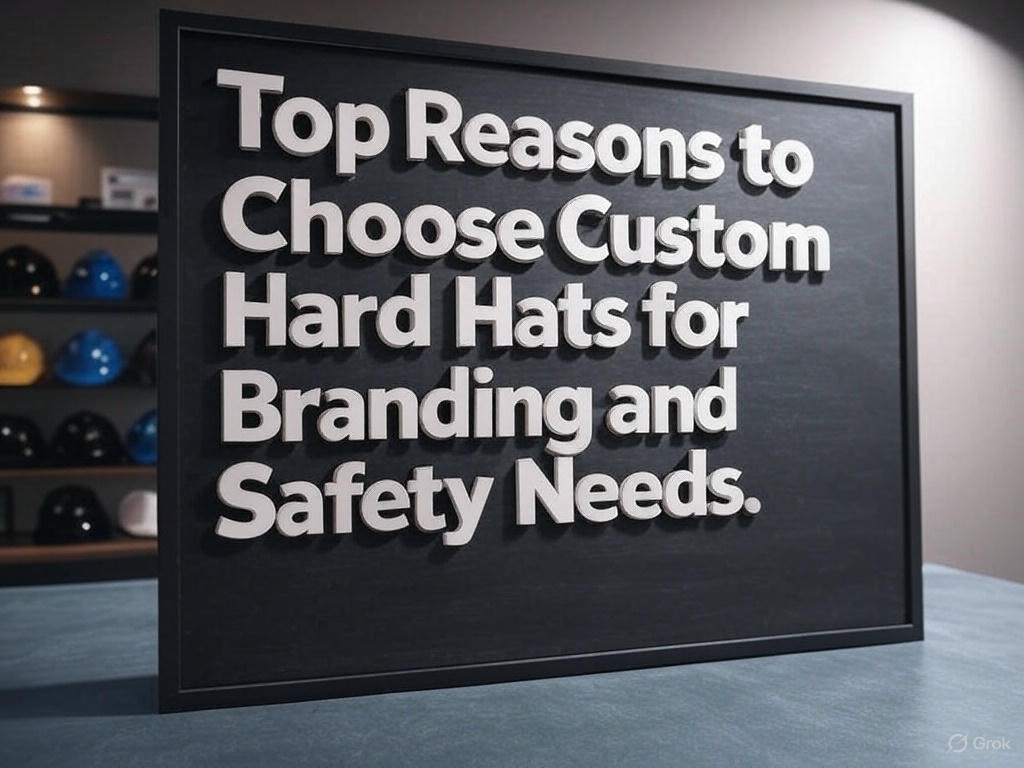The modern supply chain is more dynamic than ever before, and businesses are under constant pressure to improve efficiency, reduce costs, and minimize disruptions. One of the most transformative forces driving supply chain innovation is the Internet of Things (IoT). By connecting physical assets, sensors, vehicles, and systems into intelligent networks, IoT supply chain solutions provide real-time insights and automation that help businesses stay competitive in an unpredictable global marketplace.
In this article, we’ll explore the top-rated IoT supply chain solutions, why they stand out, and how companies are using them to streamline operations.
The Role of IoT in Supply Chain Management
IoT technology extends visibility into every aspect of the supply chain by collecting and transmitting real-time data. From smart sensors embedded in shipping containers to connected warehouse robots, IoT enables:
- Real-time tracking of goods in transit.
- Predictive maintenance for vehicles and equipment.
- Demand forecasting through better data analysis.
- Automation in warehouses and distribution centers.
- Improved sustainability by reducing waste and energy usage.
These benefits translate into cost savings, better customer experiences, and the ability to anticipate and mitigate risks before they escalate.
Top-Rated IoT Supply Chain Solutions
1. IBM Sterling Supply Chain Insights
IBM’s Sterling platform is widely recognized for integrating artificial intelligence with IoT. It leverages machine learning to process IoT sensor data, providing companies with real-time visibility and predictive insights.
Key Features:
- Cognitive analytics for demand planning.
- IoT-driven shipment monitoring.
- Proactive alerts for supply chain disruptions.
Why It’s Top-Rated: IBM’s platform excels at using AI to enhance decision-making. It helps enterprises detect potential issues early, enabling faster responses to delays, inventory shortages, or supplier disruptions.
2. SAP Integrated Business Planning (SAP IBP)
SAP IBP combines IoT data with advanced planning and forecasting tools. It is particularly strong for global enterprises that need to unify supply chain management across multiple regions.
Key Features:
- Integration with SAP’s ERP ecosystem.
- Demand-driven replenishment powered by IoT data.
- Scenario planning and “what-if” simulations.
Why It’s Top-Rated: The seamless integration with SAP’s existing enterprise systems makes this solution a favorite for large-scale organizations. Real-time IoT data enhances both agility and resilience.
3. Oracle SCM Cloud
Oracle’s SCM Cloud incorporates IoT across procurement, logistics, and manufacturing processes. It’s built to help businesses handle complex, interconnected supply chains.
Key Features:
- IoT-enabled fleet monitoring.
- Warehouse robotics integration.
- End-to-end order fulfillment visibility.
Why It’s Top-Rated: Oracle SCM Cloud stands out for its flexibility and scalability. Businesses can easily customize the platform to fit specific needs, making it ideal for industries like retail and manufacturing.
4. Manhattan Associates Supply Chain Platform
Known for warehouse and transportation management, Manhattan Associates has evolved its platform to integrate IoT for real-time optimization.
Key Features:
- IoT-driven warehouse automation.
- Dynamic transportation routing.
- Cloud-based collaboration tools.
Why It’s Top-Rated: Manhattan’s strength lies in its warehouse management capabilities. Its IoT integration enables highly efficient fulfillment strategies, especially for e-commerce and retail operations.
5. Infor Nexus
Infor Nexus is a cloud-based supply chain solution that harnesses IoT and AI to enhance supply chain orchestration.
Key Features:
- Global visibility with IoT-enabled shipment tracking.
- Supplier collaboration tools.
- Predictive logistics powered by real-time sensor data.
Why It’s Top-Rated: Infor Nexus is highly regarded for improving transparency and collaboration in global supply chains. Its IoT integration helps businesses proactively mitigate risks and improve on-time delivery.
6. Microsoft Dynamics 365 Supply Chain Management
Microsoft brings IoT-powered insights to supply chain operations with its Dynamics 365 suite, ideal for businesses already leveraging Microsoft ecosystems.
Key Features:
- IoT-driven predictive maintenance.
- Integration with Azure IoT services.
- Enhanced production planning and scheduling.
Why It’s Top-Rated: Microsoft’s solution is powerful for manufacturing environments. By combining IoT with predictive analytics, it helps reduce downtime and improve production efficiency.
7. Zebra Technologies
Zebra specializes in hardware and software IoT solutions for supply chains, particularly around asset tracking and mobile computing.
Key Features:
- IoT-enabled RFID tracking.
- Real-time asset visibility across warehouses and fleets.
- Data analytics through Zebra Savanna platform.
Why It’s Top-Rated: Zebra is recognized for its industry-leading IoT hardware that directly supports supply chain operations. Its solutions are critical for logistics providers needing granular visibility.
8. PTC ThingWorx
ThingWorx by PTC is an IoT platform designed for industrial supply chains. It helps organizations build custom IoT applications that connect machinery, logistics, and operations.
Key Features:
- IoT app development platform.
- Real-time equipment and logistics monitoring.
- AR integration for field service operations.
Why It’s Top-Rated: ThingWorx is highly customizable, allowing companies to create IoT supply chain solutions tailored to their unique requirements.
How Companies Are Benefiting from IoT Supply Chain Solutions
Businesses across industries are seeing transformative results with IoT:
- Retail: Companies like Walmart use IoT-enabled sensors and RFID to track inventory, ensuring shelves are stocked and improving customer experiences.
- Manufacturing: Automakers employ IoT for predictive maintenance and smart factory operations.
- Logistics: FedEx and UPS use IoT to track packages in real time, increasing transparency for customers.
- Pharmaceuticals: IoT sensors monitor cold chain logistics, ensuring medicines and vaccines maintain safe temperatures.
Choosing the Right IoT Supply Chain Solution
Selecting the right platform depends on several factors:
- Business Size and Complexity
- Global enterprises may benefit from SAP or Oracle.
- Small-to-mid-sized businesses might prefer Zebra or Microsoft Dynamics.
- Industry Focus
- Retailers may lean toward Manhattan Associates.
- Manufacturers may find PTC ThingWorx most beneficial.
- Integration Needs
- Companies already invested in ERP systems may find SAP or Microsoft more seamless.
- Customization vs. Out-of-the-Box
- Highly regulated industries may require PTC ThingWorx’s customization.
- Businesses seeking quick deployment may favor IBM Sterling or Infor Nexus.
Future Trends in IoT Supply Chain Solutions
Looking ahead, IoT in supply chain management will only continue to expand. Key trends include:
- 5G adoption enabling faster and more reliable data transfer.
- AI-driven automation reducing human error and improving decision-making.
- Blockchain integration enhancing traceability and trust.
- Sustainability tracking through IoT sensors monitoring carbon emissions and energy use.
As these technologies mature, IoT supply chain solutions will become even more indispensable for global trade and logistics.
Final Thoughts
The demand for IoT supply chain solutions is rapidly growing, driven by the need for greater visibility, efficiency, and resilience. Top-rated platforms such as IBM Sterling, SAP IBP, Oracle SCM Cloud, and Microsoft Dynamics 365 demonstrate the diverse ways IoT can revolutionize supply chain management.
Whether your business needs predictive maintenance in manufacturing, end-to-end visibility in logistics, or advanced planning in retail, IoT-powered platforms provide the tools to stay ahead of disruptions and meet customer expectations.
By choosing the right solution and aligning it with your operational goals, you can transform your supply chain into a smarter, more agile, and future-ready system.






